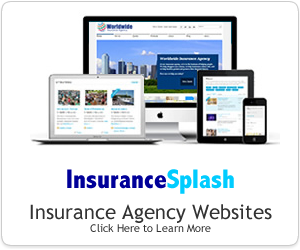 Getting links to your insurance agency website from other sites is a powerful way to improve your local search engine rankings with Google, Yahoo, and Bing. It’s important to know, however, that all links are not created equal. I’ve created an acronym to help you remember the best kinds of inbound links to improve your local search rankings. The secret to local search engine rankings is building LARVA links!
Let’s explore each of the LARVA elements in greater detail. Remember that a link that has every element of LARVA is rare, but the more links you have that fall within the LARVA criteria the better. Local-orientedYou’ll get a stronger boost to your local SEO with a link from a website affiliated with your local community over one that caters to another location or one that is not location-specific. Of course there are many other factors at play, so a link from the New York Times will probably help more than one from your local Chamber of Commerce. However, a link from your local Chamber SHOULD help you more for SEO in your locality than a link from the chamber of commerce in another area code or a general website about Chambers of Commerce. AuthoritativeInbound links to your website boost your search rankings because Google and Bing view links as “votes of quality”. Bad websites and unpopular businesses don’t frequently get many inbound links from other websites. These “votes of quality” hold stronger weight when they are cast by other websites that are also viewed as high quality. For example, getting a link from the front page of Insurance Journal is more difficult and says more about the popularity of your business than getting a link from your sister-in-law’s mommy blog. RelevantWhen Google and Bing place weight on the value of an inbound link, they look at the relevance of both the website and the specific page where the link exists. Google will actually read the words on the page and get vague idea of it’s topic and combine that with the overall topic of the entire website. While every link helps, as an insurance agent it will be more beneficial to get links from websites that are about things like personal finance, asset protection, cars, homes, etc. VoluminousQuite simply, link building is a numbers game and the more links to your site you have the better off you are. There is a delicate balance between getting a higher number of inbound links and making sure they qualify for at least some of the other elements of LARVA. My general answer is that no link is bad and you need to get as many as possible, but WAY too many from low-quality, irrelevant websites with anchor text unrelated to your website can work against you. Anchor TextAnchor Text is the text that is used in a link to your website. In this example:
Insurance Marketing Ideas The anchor text is: “Insurance Marketing Ideas”. It’s very valuable to get links to your website that include the same types of keywords you’ll be trying to rank your website for. The reason for this is simple, Google assumes that if enough people link to your website using the same anchor text, it’s likely that your a good resource for that term. While it’s not always possible to control the anchor text of links to your website, there are many times when you can. Some examples could be when you’re signing up for an insurance directory, when you’re filling out a profile on LinkedIn, or when you’re doing a guest blog post on someone else’s local-oriented, authoritative and relevant website. What do you think of LARVA? I’d love to find out in the comments below.
0 Comments
Leave a Reply. |
InsuranceSplashThe #1 Insurance Marketing Website for Agents. Free insurance marketing ideas, tools, strategies, and training to help agents succeed. Archives
June 2023
Categories
All
|


 RSS Feed
RSS Feed
